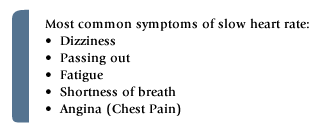Pacemakers
What is a Pacemaker?
Fadi Alsous, MD, FACC
Cardiology
Eau Claire Medical Clinic
Eau Claire
A pacemaker is a device that is implanted under the skin and helps the heart pump blood in an appropriate way. The pacemaker battery is connected to the heart with wires to transmit electricity to the heart and transmit information from the heart back to the pacemaker.
“The most common reason for the implanting of a pacemaker is a slow heart rate.”
When is it used?
The most common reason for the implanting of a pacemaker is a slow heart rate. On average, the heart beats 50–100 times per minute at rest and up to 180–190 beats a minute during activity depending on age. In general, some people tolerate a heart rate below 50, especially when they are on certain kinds of medicine without symptoms. When symptoms start to appear then a pacemaker is needed.

There are some patients who have a fast heart rate at times and a very slow heart rate at times that results in one or more of the common symptoms listed to the left. Generally those patients require a combination of a pacemaker and medications to regulate their heart beat. There are certain kinds of pacemakers that are
used not because of slow heart rate, but to help the heart beat
more like normal as in the case of congestive heart failure.
How long does the pacemaker battery last?
The pacemaker battery lasts 4 to 12 years. Your pacemaker
is followed up by your cardiologist in the office and also transtelephonically. You need to have your pacemaker checked
in the clinic at least twice per year. Your cardiologist puts the
wand on your body in the pacemaker area. This is not painful and takes only a few minutes.
The pacemaker technology has evolved quickly over the last ten years and for a complete list of devices that interfere with pacemakers you should contact your physician.
Dr. Alsous, MD, FACC – Eau Claire Medical Clinic
For information or to schedule an appointment:
715.552.9780 | www.eauclairemedical.com
Dr. Alsous sees patients in Eau Claire, Chippewa Falls and Rice Lake.